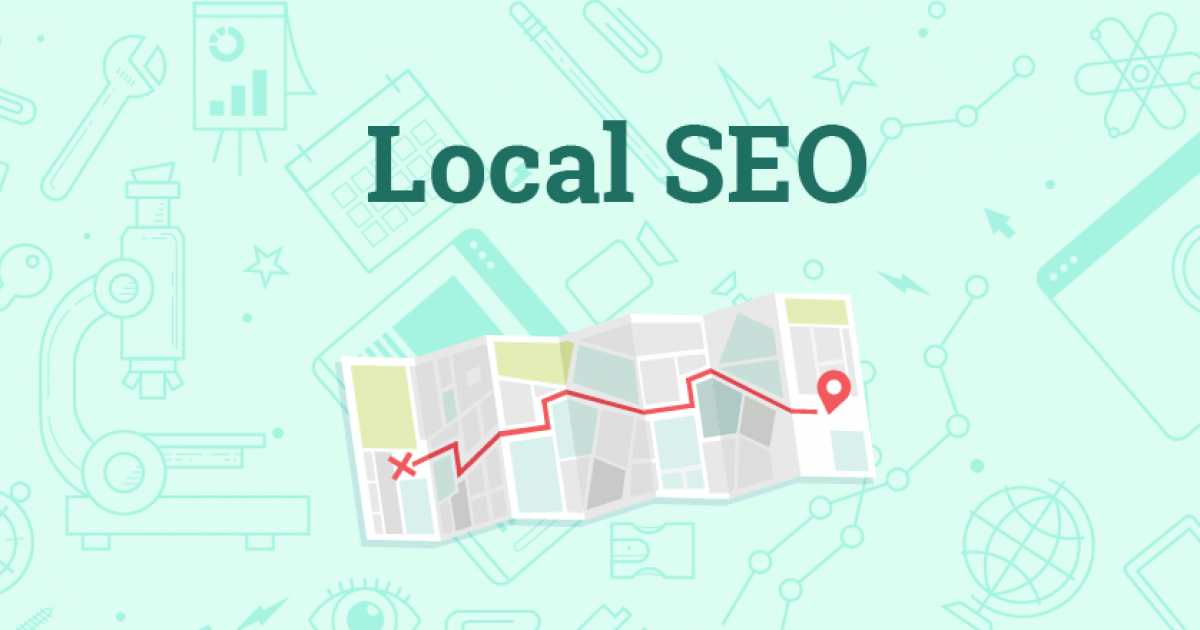If you're looking to attract more local customers in your area it's important to concentrate on local SEO. Take a look at our top 22 ways to improve your local SEO ranking.
Quick summary:
- Google My Business
- Google My Business Categories
- Photos on Google My Business Page
- Bing Places for Business
- Online Directories/Citations
- Listings on Review Sites
- Number of Positive Reviews
- Reviews with Keywords & Location
- Create a Facebook Business Page
- Social Listings
- Consistent NAP
- Mobile Responsiveness
- Structured Data Markup
- Click-Through Rates from Search Results
- Localized Content
- On-page Location + Keyword Optimization
- Title + Meta Description
- High-Quality Inbound Links
- Diversity of Inbound Links
- Inbound Links from Local Relevant Sites
- Inbound Using Local + Keyword in Anchor Text
- Proximity to the Searcher
1. Google My Business
Make sure you claim your Google My Business page, it only takes a few minutes and it's completely free. This is a very simple and easy way to begin improving your local SEO.
2. Google My Business Categories
Double check your Google My Business information and make sure you have the correct categories chosen for your business. Keep it to as few categories as possible and make sure they're accurate.
3. Photos On Google My Business Page
Include pictures of your location, your products, staff, as well as customers. Photos provide credibility to your business and are a ranking signal for local SEO.
4. Bing Places For Business
Bing carries around 33% of the search market share, take a few minutes to claim your Bing Places For Business account.
5. Online Directories/Citations
Claim your business page on as many reputable online directories as possible, they still hold value and impact rankings for local SEO.
6. Listings On Review Sites
While Google carries the most weight when it comes to ranking signals, take some time to claim your business on a variety of review sites as well.
7. Number Of Positive Reviews
While this may be obvious, it's important to mention that you want to make sure the majority of reviews are positive. High-quality reviews improve your business' visibility.
8. Reviews With Keywords And Location
Google looks for signals such as location and keywords in reviews to rank how trusted you are in the local area.
9. Create A Facebook Business Page
This is another that should go without saying, make sure you create a business page on Facebook and keep it updated with the correct information.
10. Social Listings
Twitter, LinkedIn, Instagram, and others are all important platforms to create a business page. Even if you don't plan to be very active on them make sure you setup your account and it's a good idea to pin a post or tweet inviting users to call/follow/visit you.
11. Consistant NAP
Keep your name, address, and phone number consistent across platforms such as social media, directories, and review sites.
12. Mobile Responsiveness
Google looks at your mobile site first ever since it's mobile-first indexing rolled out. Your website needs to be mobile friendly, not just for ranking but also for overall usability.
13. Structured Data Markup
Structured data markup for local SEO can include: hours, address, menu, website, phone number, departments, etc.
14. Click-Through Rates From Search Results
When creating meta titles and descriptions make sure you focus on making them relevant so users find exactly what they are looking for when they arrive.
15. Localized Content
Writing about things such as local events can help you with organically including your keywords and location.
16. On-Page Location & Keyword Optimization
When optimizing keywords try to include your location in them as well. An example would be instead of "air conditioning repair" try to optimize for "air conditioning repair sarasota" (or relevant location).
17. Title + Meta Description
Use your location and keywords in both your title and meta descriptions whenever possible.
18. High-Quality Inbound Links
Links from trusted sites are great for SEO!
19. Diversity Of Inbound Links
Include inbound links that are gained organically, relevant, and authoritative.
20. Inbound Links From Local Relevant Sites
Try to get links from local news sites, community blogs, and other relevant sites since they are trusted sources in your local community.
21. Inbound Using Local + Keyword In Anchor Text
Inbound links from an authoritative site using both your location or neighborhood and you main keyword are great for local SEO.
22. Proximity To The Searcher
Optimizing for a physical location is a strong ranking signal which is why claiming your Google My Business page and keeping your NAP (name, address, phone number) are so important.






